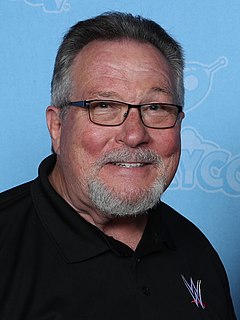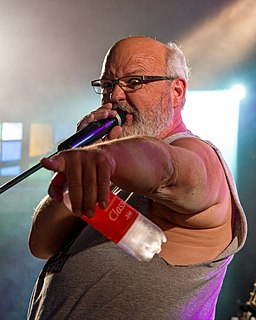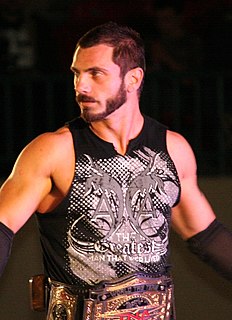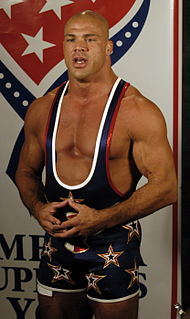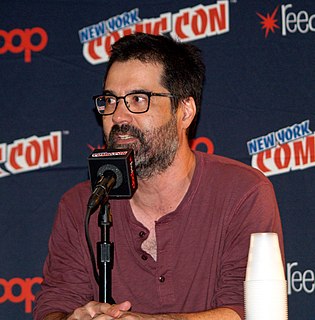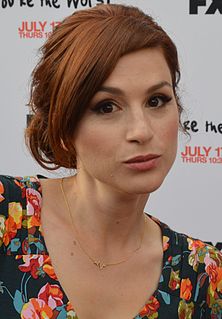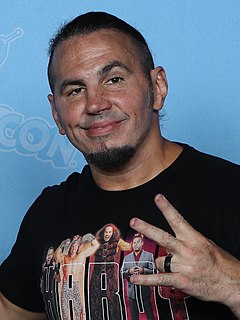A Quote by Ted DiBiase Sr.
I think with a lot of comics, their gift is improv. They don't have a script. They'll have a couple of good ideas they start with, and go from there. And it's the same in wrestling.
Related Quotes
Any good movie or script usually, if they're doing their job, gives the highest platform possible for an actor to leap off of, and that script was very high up there. It was a very smart, tight script. There was a lot of improv, as well, once we got to the set, but a lot of the original script was also in there.
I think sometimes when people start doing improv there's some regression towards trying to replicate the "good" improvisers that they've read about in their improv books or heard about from their teachers. That's understandable, because they're trying to learn technique and stuff, but I actually think that my favorite performers are ones who have unique improv technique but also have a unique point of view that you can feel with them and their performances.
There are a lot of good comics, no doubt, but as far as the quality of the comics goes, I think what you have is a bunch of situational comics - there are black comics that work only black crowds, gay comics that do only gay crowds, and southern comics that only work down South, and so on with Asian, Latino, Indian, midgets, etc. The previous generation's comics were better because they had to make everybody laugh.
And I think that’s a lot of the reason why when you start to fragment your audience, you start to think about what you’re looking for, you’ll go to different spaces, and it parallels what we do as adults. You go to different bars when you’re in the mood for different things. You see different people when you want to go listen to music or when you just want to have a quiet drink with a couple of friends.
Almost everyone working in mainstream comics started off as a starry-eyed kid reading and loving comics. We're all fans, and that's great. But when we start working on company-owned comics professionally, we have to think like storytellers instead of fans. Editors aren't looking to hire the biggest fans of the characters. They're looking to hire the best creators with the best ideas.
Writing is like wrestling; you are wrestling with ideas and with the story. There is a lot of energy required. At the same time, it is exciting. So it is both difficult and easy. What you must accept is that your life is not going to be the same while you are writing. I have said in the kind of exaggerated manner of writers and prophets that writing, for me, is like receiving a term of imprisonment-you know that's what you're in for, for whatever time it takes.
When you start out as an actor, you read a script thinking of it at its best. But that's not usually the case in general, and usually what you have to do is you have to read a script and think of it at its worst. You read it going, "OK, how bad could this be?" first and foremost. You cannot make a good film out of a bad script. You can make a bad film out of a good script, but you can't make a good film out of a bad script.
